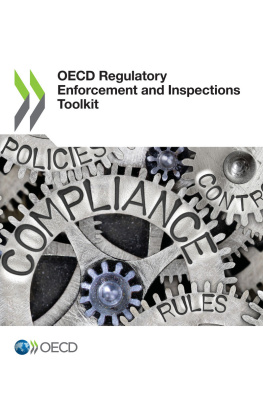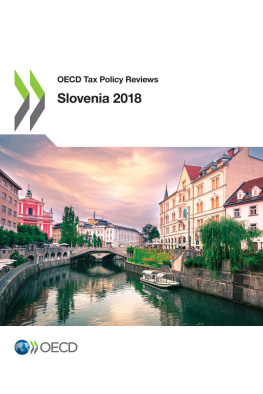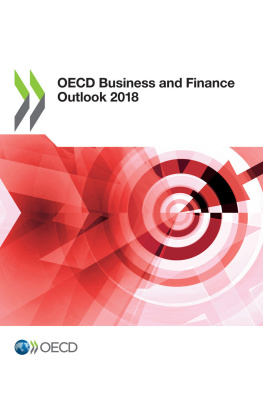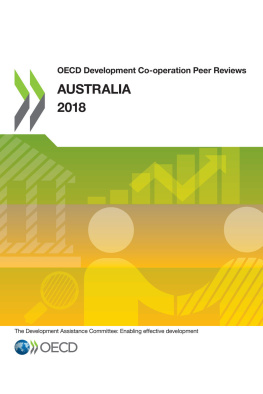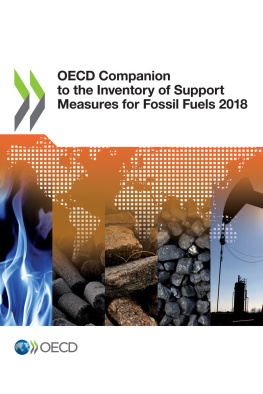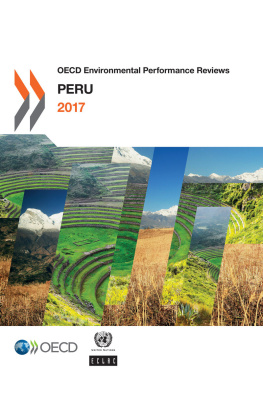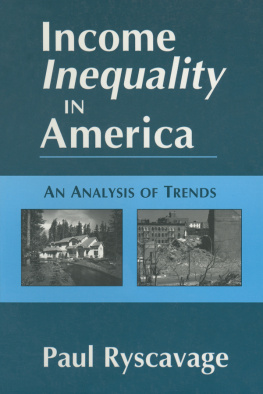coll. - Income Inequality : the Gap Between Rich and Poor. : OECD Insights.
Here you can read online coll. - Income Inequality : the Gap Between Rich and Poor. : OECD Insights. full text of the book (entire story) in english for free. Download pdf and epub, get meaning, cover and reviews about this ebook. year: 0, publisher: OECD., genre: Politics. Description of the work, (preface) as well as reviews are available. Best literature library LitArk.com created for fans of good reading and offers a wide selection of genres:
Romance novel
Science fiction
Adventure
Detective
Science
History
Home and family
Prose
Art
Politics
Computer
Non-fiction
Religion
Business
Children
Humor
Choose a favorite category and find really read worthwhile books. Enjoy immersion in the world of imagination, feel the emotions of the characters or learn something new for yourself, make an fascinating discovery.

Income Inequality : the Gap Between Rich and Poor. : OECD Insights.: summary, description and annotation
We offer to read an annotation, description, summary or preface (depends on what the author of the book "Income Inequality : the Gap Between Rich and Poor. : OECD Insights." wrote himself). If you haven't found the necessary information about the book — write in the comments, we will try to find it.
Income Inequality : the Gap Between Rich and Poor. : OECD Insights. — read online for free the complete book (whole text) full work
Below is the text of the book, divided by pages. System saving the place of the last page read, allows you to conveniently read the book "Income Inequality : the Gap Between Rich and Poor. : OECD Insights." online for free, without having to search again every time where you left off. Put a bookmark, and you can go to the page where you finished reading at any time.
Font size:
Interval:
Bookmark:
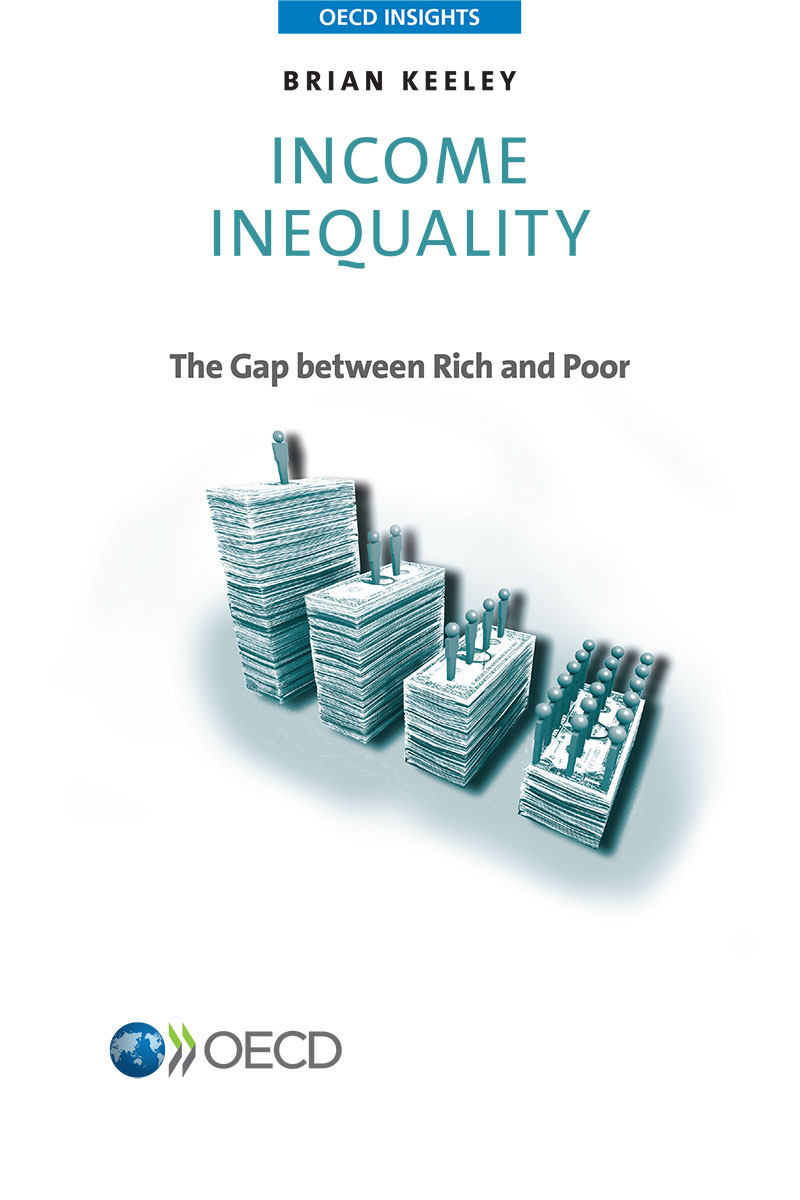
Flicitations et merci davoir tlcharg lun de nos tout nouveaux ePub en version bta.
Nous exprimentons ce nouveau format pour nos publications. En effet, mme si lePub est formidable pour des livres composs de texte linaire, le lecteur peut tre confront quelques dysfonctionnements avec les publications comportant des tableaux et des graphiques tout dpend du type de support de lecture que vous utilisez.
Afin de profiter dune exprience de lecture optimale, nous vous recommandons :
- Dutiliser la dernire version du systme dexploitation de votre support de lecture.
- De lire en orientation portrait.
- De rduire la taille de caractres si les tableaux en grand format sont difficiles lire.
Comme ce format est encore en version bta, nous aimerions recevoir vos impressions et remarques sur votre exprience de lecture, bonne ou autre, pour que nous puissions lamliorer lavenir. Dans votre message, merci de bien vouloir nous indiquer prcisment quel appareil et quel systme dexploitation vous avez utilis ainsi que le titre de la publication concerne. Vous pouvez adresser vos remarques ladresse suivante :
Merci !
Congratulations and thank-you for downloading one of our brand-new ePub-in-beta editions.
We're experimenting with this new format and, while ePub is fantastic for books with linear text, for books with charts, tables and graphs weve found some things may not work perfectly it depends on the device youre using.
So, for an optimal reading experience, we recommend:
- Using the latest version of your devices operating system.
- Reading in portrait mode.
- If large tables are tricky to read, try reducing the text size.
As this is an ePub-in-beta edition, we would be glad to receive feedback on your reading experience, good or otherwise, so we can improve for the future. When writing, please let us know which device/operating system you were using and the title of the publication. Write to:
Thank you!
Keeley, B. (2015), Income Inequality: The Gap between Rich and Poor, OECD Publishing, Paris, http://dx.doi.org/10.1787/9789264246010-en.

Inequality is bad and getting worse. In the 1980s, the richest 10% of the population in OECD countries earned 7 times more than the poorest 10%. They now earn nearly ten times more. When you include property and other forms of wealth, the situation is even worse: in 2012, the richest 10% controlled half of all total household wealth and the wealthiest 1% held 18%, compared to only 3% for the poorest 40%.
The poorest members of society suffer immediately from inequality, but in the longer term, the whole economy is also damaged. OECD figures show that the rise in inequality observed between 1985 and 2005 in 19 OECD countries knocked 4.7 percentage points off cumulative growth between 1990 and 2010.
To reduce inequality, we have to promote inclusive growth. Create economies where every citizen, regardless of income, wealth, gender, race or origin is empowered to succeed. Our approach to doing this rests on four main pillars.
Overcome gender inequalities. The fact that more women have worked full-time and earned higher wages since 1990 has limited the rise of inequality, but we cannot be happy with the slow pace of change, and we cannot afford to waste the potential of the many women who are excluded from the labour market.
Labour market policies need to address working conditions as well as wages and their distribution. In 2013, about a third of total OECD employment was in non-standard jobs: temporary jobs, permanent part-time jobs and self-employment. Youth are the most affected group: 40% are in non-standard work and about half of all temporary workers are under 30. Working conditions are often precarious and poor, and can trap workers at the bottom of the ladder. Among those on temporary contracts in a given year, less than half had full-time permanent contracts three years later.
A focus on education in early years is essential to give all children the best start in life. This investment needs to be continued throughout life to prevent disadvantage, promote better opportunities and educational attainment. High inequality makes it harder for lower-middle and working class families to invest in education and skills.
Governments should not hesitate to use taxes and transfers to moderate differences in income and wealth. Well-designed, prudent redistribution need not harm growth. We do not need new instruments; we simply need to use better the ones we have: scaling back tax deductions, eliminating tax exemptions, making tax systems more progressive, using property taxes batter and above all, ensuring greater tax compliance. And lets not forget government transfers. They play an important role in guaranteeing that low-income households do not fall too far behind.
This new book in the OECD Insights series explores how inequality is rising, why it is rising and the impacts of this rise on peoples lives. We argue that rising inequality can be avoided if we take decisive action to promote inclusive growth.

Angel GurraOECD Secretary-General
The author thanks Michael Frster of the OECD Centre for Opportunity and Equality for his assistance as well as Federico Cingano, BorisCournde, Vincent Finat-Duclos, Damian Garnys, AudreyGarrigoux, Sue Kendall-Bilicki, Maxime Ladaique, FrdricLamoitte, Kate Lancaster, Horacio Levy, Patrick Love, Ana Llena Nozal, Julia Stockdale-Otarola and Cline Thevenot.
Font size:
Interval:
Bookmark:
Similar books «Income Inequality : the Gap Between Rich and Poor. : OECD Insights.»
Look at similar books to Income Inequality : the Gap Between Rich and Poor. : OECD Insights.. We have selected literature similar in name and meaning in the hope of providing readers with more options to find new, interesting, not yet read works.
Discussion, reviews of the book Income Inequality : the Gap Between Rich and Poor. : OECD Insights. and just readers' own opinions. Leave your comments, write what you think about the work, its meaning or the main characters. Specify what exactly you liked and what you didn't like, and why you think so.








